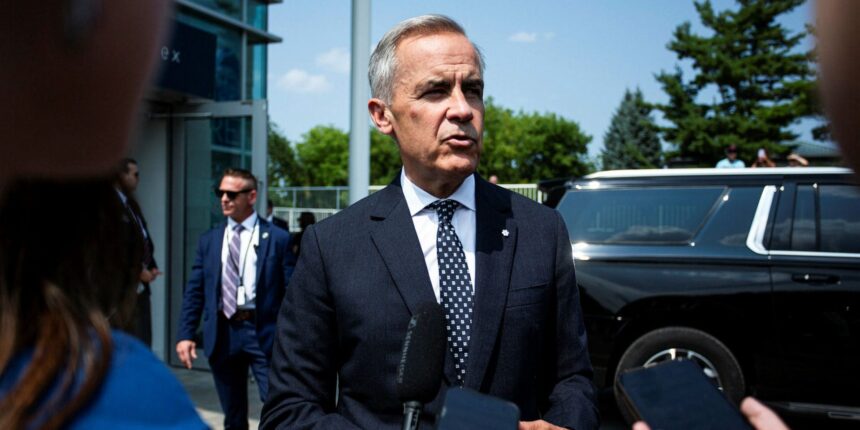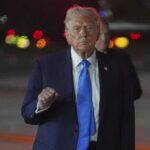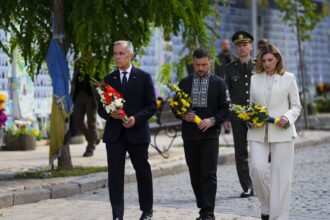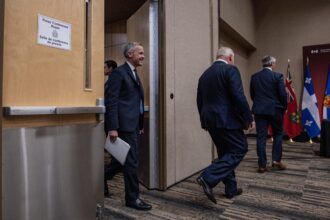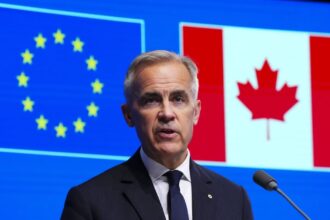In a significant diplomatic initiative that has largely escaped mainstream attention, former Bank of Canada governor Mark Carney has joined forces with Ukrainian President Volodymyr Zelenskyy to spearhead a critical humanitarian mission: the repatriation of thousands of Ukrainian children forcibly displaced during Russia’s ongoing invasion.
The collaboration, revealed during high-level meetings in Kyiv last week, represents one of the most coordinated international efforts to address what many human rights organizations have classified as a systematic campaign of child abduction. According to Ukrainian government figures, over 19,500 children have been identified as deported or forcibly transferred to Russia or Russian-controlled territories since February 2022.
“These are not simply statistics—these are children with names, families, and communities waiting for their return,” Carney stated during a joint press conference with President Zelenskyy. “The international community must recognize this as both a humanitarian crisis and a direct violation of international law that demands immediate action.”
Carney, who currently serves as the UN Special Envoy for Climate Action and Finance following his tenure at the Bank of England, has leveraged his extensive diplomatic connections to establish a multinational working group focused exclusively on child repatriation efforts. The initiative has already secured commitments from several G7 nations to provide both financial and logistical support.
Ukrainian officials presented evidence of what they described as a deliberate Russian policy to separate children from their families and place them with Russian families or in state-run facilities—actions that align with definitions of cultural genocide under international conventions. The International Criminal Court has already issued arrest warrants for Russian President Vladimir Putin and Russia’s commissioner for children’s rights, Maria Lvova-Belova, in connection with these allegations.
“The forcible transfer of children from one group to another constitutes one of the gravest violations of human rights,” noted international legal expert Caroline Hughes from the University of Toronto. “What makes this particularly concerning is the systematic nature of these transfers and the apparent policy objectives behind them.”
President Zelenskyy emphasized that child repatriation represents a non-negotiable aspect of any future peace discussions. “Every day that passes is another day these children are subjected to cultural erasure and separation from their homeland,” Zelenskyy said. “This is not merely a humanitarian concern but an existential one for Ukraine’s future.”
The repatriation initiative faces significant challenges, including Russian denial of these activities, limited access to occupied territories, and the complex process of identifying and documenting cases. To address these obstacles, Carney announced the creation of a dedicated international fund to support identification, documentation, and eventual reunification efforts.
Canadian Prime Minister Justin Trudeau has pledged $25 million to support the initiative, with additional commitments expected from other NATO allies in the coming weeks. The funding will support both immediate repatriation efforts and longer-term psychological and social support for returning children and their families.
The work has already yielded some results, with approximately 388 children successfully returned to Ukraine through various diplomatic channels and humanitarian corridors established with neutral third-party mediation. However, this represents just a fraction of the total number of displaced children.
As this crisis continues largely in the shadows of broader war coverage, one question remains painfully relevant: In a conflict defined by territorial conquest and geopolitical positioning, will the international community summon the necessary political will to prioritize the return of thousands of children caught in the crossfire of Europe’s largest land war since World War II?
For more on Canada’s involvement in international affairs, visit CO24 Canada News or for broader global developments, check CO24 World News.

